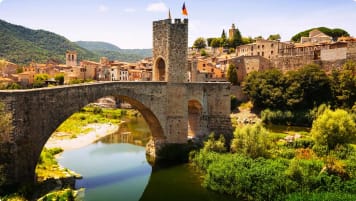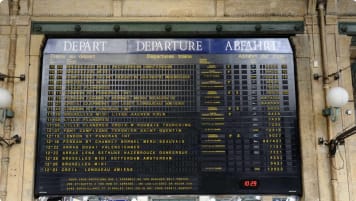History of France by Rail | Escorted Small Group Tour for Seniors
French History by Rail small group tour is based on Ina Caro’s book of the same name. Participants live in central Paris, using apartments as a base, living as the locals do, whilst meeting each day as a small group to journey by rail and TGV to the beautiful medieval centres of France.
From A$18,475AUD
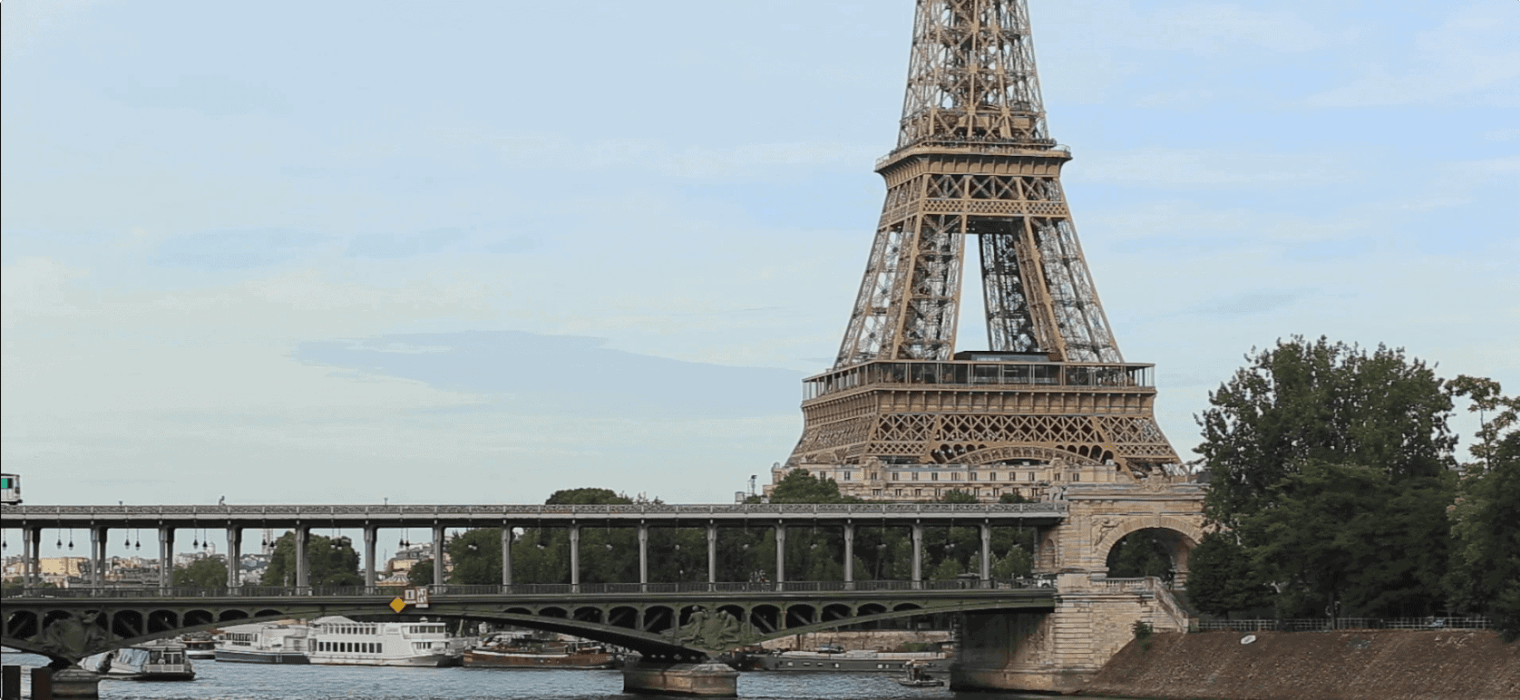
Highlights
- 1. Experience everyday life as the Parisians do, from our apartment.
- 2. Explore the newly opened Louvre Museum Extension in the city of Lens.
- 3. Explore Paris and journey by rail to regions and great cities to learn about their historical significance and influence on France.
- 4. Shop for fresh food at open-air markets and savour the local cuisine and culture.
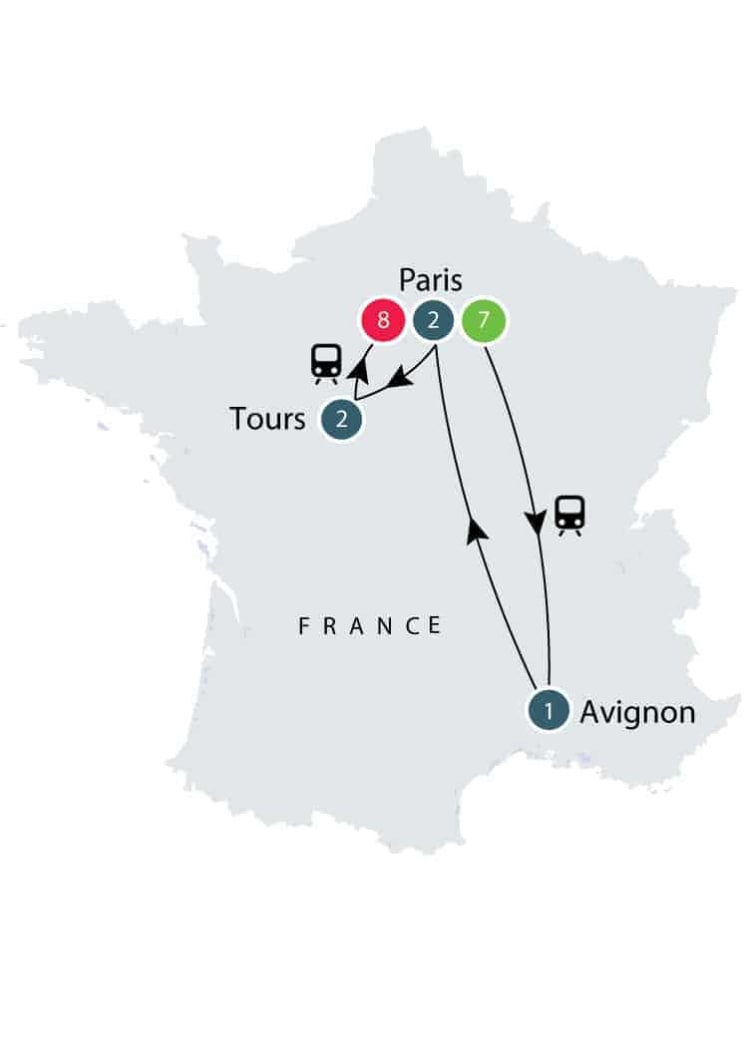
Departure Dates
| Departure Date | Price |
|---|---|
| 05 October 2025 Ends 25 October 2025 • 21 days A$18,475 Twin A$23,265 Single Available | Selected |
| 15 May 2026 Ends 04 June 2026 • 21 days A$19,475 Twin A$24,265 Single Available | |
| 04 October 2026 Ends 24 October 2026 • 21 days A$19,475 Twin A$24,265 Single Available | |
| 14 May 2027 Ends 03 June 2027 • 21 days A$19,995 Twin A$24,750 Single Available | |
| 03 October 2027 Ends 23 October 2027 • 21 days A$19,995 Twin A$24,750 Single Available |
History of France by Rail
History of France by Rail offers participants an unforgettable journey through French history based in Paris. On this educational tour, based on Ina Caro's famous book of the same title, we live for almost three weeks in one of the central arrondissements of Paris. Using charming Paris apartments as a base, we live as the locals do, enjoying the charms of Parisian life. We have time to enjoy the bustle of daily Parisian life, with morning coffee at the local boulangerie and visits to the local markets and its elegant arcades. In the evening there is, of course, time to explore while visiting local cafes and charming restaurants.
From this base, we come together each day as a small group to journey by rail to the beautiful medieval city centres of France. While here, we experience short tours in such historic and scenic cities as Caen, Chartres, Rouen, Tours, and Avignon. Riding the train is a great way to reach out into the history of this fascinating country.
Exploring the History of France enables both couples and single travellers to journey with like-minded individuals. A couple of hours is all it takes to arrive in the heart of some of these magnificent cities. Consequently, we have many hours to join a local guide for a walking tour of the city. We return towards the end of each day on a fast train back into Paris ready for another adventure the following day. On most days, the program provides us with the evening free to explore Paris.
Our start time each day is usually after the morning rush when we meet up with the program leader. This escorted European small group tour for seniors includes just two overnight stays outside of Paris, in Tours and Avignon. This program is limited to a maximum of fifteen people. Let the history of France come alive on this extraordinary cultural tour!
If you'd like to learn more about France, visit our country profile where all the other tour departures are listed as well. For more details on this tour, click the ‘Top 5’ or ‘Itinerary’ buttons above! If you’re keen to experience this tour, please call or send an email. Or, to book, simply fill in the form on the right-hand side of this page.
Articles assisting senior travellers to prepare for this History of France by Rail Tour
The following list of articles are either published by Odyssey Traveller for mature aged and senior travellers or carefully selected from external sources to maximise their knowledge and enjoyment of France when visiting:
- Exploring France by rail some tips.
- Ten of the best travel books on France
- Ten things to do in France when you visit
- Designing Paris
- Paris; leaders and landmarks
- Guillamot prevents the collapse of Paris
- The elegant arcades of Paris.
- Questions about France
- Studying Gargoyles and grotesques
- Around the world in six coffees
- Ten of the best French cookery books.
- Ten of the Best art galleries in Europe to visit.
- A guide on France for mature travellers
- A guide to Alsace
- History of Alsace; Britannica.com
- Burgundy's climat; a UNSECO world heritage listing
- Avignon, the palace of Popes
- History of Avignon 15-18th century
- Exploring Chatres cathedral
- War of religion; France
- Published articles on French history.
Other Railway Journeys by Odyssey Traveller
Odyssey Traveller has several railway tours that may also be of interest. All of these tours are especially designed for the active senior traveller. Just click through to see the itinerary and sign up!
- If you prefer staying in France, Odyssey offers a Paris-Bordeaux-Provence By Train Tour which runs for 22 days.
- A short version of this tour runs for 11 days: French history by rail.
- Odyssey Traveller’s Helsinki to Irkutsk tour on the Trans-Siberian Railway runs for 21 days and spends multiple nights in Helsinki, St Petersburg, Moscow, Yekaterinburg, Krasnoyarsk, and Irkutsk, with stops at Russia’s oldest national nature reserve, Stolby Nature Sanctuary, and Lake Baikal. You can also do a reverse tour, starting in Irkutsk and finishing in Helsinki.
- The Vladivostok to Krasnoyarsk tour moves westward from Vladivostok, where in 1891 tsar-to-be Nicholas first laid the stone that would be the foundation of the railway, to the old town of Krasnoyarsk in the heart of Siberia. This tours is also offered with a reverse itinerary.
- The 30-day Trans-Mongolia and Russia tour takes you on the Trans-Siberian and the Trans-Mongolian Railway lines. The tour begins in Ulaanbaatar, the capital of Mongolia, and concludes with a cruise on the waterways between Moscow and St Petersburg.
Gallery
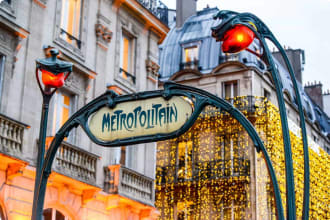

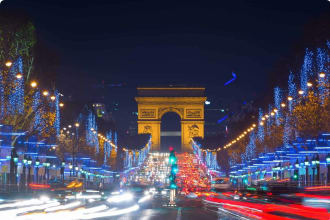
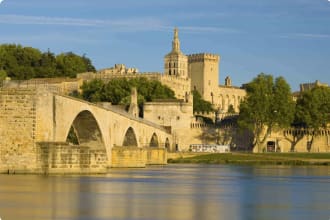
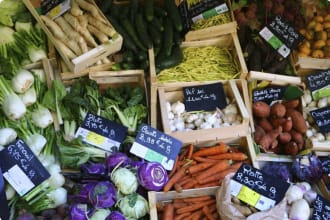
Itinerary
21 days
Day 1: Paris
Accommodation: 7 nights at a Paris apartment located in a central arrondissement.
Upon arrival in Paris we will come to the accommodation individually. We will settle in to our apartments and meet in the early evening for a briefing followed by our welcome dinner at a local restaurant.
Day 2: Paris
Accommodation: Paris apartment located in a central arrondissement.
Today we begin our tour with a guided walking tour of the Île de la Cité, including a visit to the Archaeological Crypt and a visit to the nearby Notre Dame Cathedral. Here we discover remnants of buildings and monuments from the 3rd century including two Gallo-Roman rooms heated by hypocaust. After free time for lunch we travel by Metro to the great Cathedral of St. Denis to learn about its place in the history of French architecture and to see the magnificent Royal Tombs.
Day 3: Paris
Accommodation: Paris apartment located in a central arrondissement.
The market in the Marais area is our morning activity. Here we can stock up for our apartment needs with vegetables, fruit, cheeses, wines, and anything necessary or unnecessary-but-desired! In the afternoon we will enjoy a guided walk of the area including the beautiful Place des Vosges with its connections with the great King Henri IV and famous characters such as Mme de Sévigné and Victor Hugo.
Day 4: Paris to Caen
Accommodation: Paris apartment located in a central arrondissement.
We will have an early start as we meet for our journey to the city of Caen in Normandy by rail. Here we discover the 11th century with a visit to the Abbey of William the Conqueror and see his simple, black marble tomb. A leap to the 20th century takes us to the thought-provoking Memorial Museum with its dedication to the events of WWII.
Day 5: Paris to Chartres
Accommodation: Paris apartment located in a central arrondissement.
Today we meet at Montparnasse Station for a full-day visit to Chartres where we will have a guided tour of France’s first High Gothic Cathedral with its magnificent stained glass windows. Back in Paris, in the evening, we hope to complete this era of history at a concert in the Ste Chapelle of Louis IX. (If we are lucky, the sun will light up the glorious stained glass windows of this exquisite chapel.)
Day 6: Paris to Reims
Accommodation: Paris apartment located in a central arrondissement.
Our full-day tour today takes us by TGV (fast train) to the city of Reims, site of the coronation of most of the French Kings. It was here that Joan of Arc brought Louis VII to be crowned after the tide of the 100 Years War was turned. During our guided walking tour of the city, we will visit the Cathedral, learn of its history and admire its stained glass including a modern series of windows by Marc Chagall. We will also learn about the city’s post WWI Art Deco redevelopment.
Day 7: Paris
Accommodation: Paris apartment located in a central arrondissement.
Today we have a free morning for shopping and other domestic chores, before we enjoy a leisurely cruise on the Seine followed by dinner at a local restaurant.
Day 8: Avignon
Accommodation: 1 night at the Cloitre St Louis hotel or similar.
The TGV will take us south to Avignon for an overnight stay. On arrival we will have a guided tour of the city including a visit to the Popes’ Palace.
Day 9: Avignon to Paris
Accommodation: 2 nights at a Paris apartment located in a central arrondissement.
The morning is free to explore Avignon and maybe visit the Pont D’Avignon or the mighty Cathedral on the Rock before we return on the TGV to Paris.
Day 10: Paris
Accommodation: Paris apartment located in a central arrondissement.
We will have time to catch our breath with a free day in Paris to explore on our own. Our Tour Leader will have some suggestions to assist those who want a “planned day.”
Day 11: Tours
Accommodation: 2 nights at the Hotel Grand or similar.
We travel on the TGV through the French countryside to the city of Tours in the Loire Valley. On arrival our guide will take us on a walking tour of the city including the delightful Place Plumereau with its half-timbered houses and a visit to the Musée du Compagnonnage (Museum of the Guilds). We spend the night in the city and enjoy dinner in our hotel.
Day 12: Tours
Accommodation: Hotel Grand or similar.
Where better to explore the development of castle architecture than the Valley of the Kings! Our guided tour will take us to the 3 glorious (and very different châteaux) of Chinon (Joan of Arc connection), Villandry (with its glorious gardens), and the delightful island château of Aizay le Rideau (one of the earliest French châteaux which seems to rise directly out of the water).
Day 13: Paris
Accommodation: 8 nights at a Paris apartment located in a central arrondissement.
We will have a free morning in Tours to explore before we return to Paris on the TGV.
Day 14: Paris
Accommodation: Paris apartment located in a central arrondissement.
Today we meet at the Gare De Lyon to travel by rail to Fontainebleau Château, built by François I but with connections to Napoleon. We can explore the château and gardens in our own time with an audio guide.
Day 15: Paris to Rouen
Accommodation: Paris apartment located in a central arrondissement.
Today gives us an intriguing juxtaposition of historical periods. We travel to the Norman capital of Rouen to visit the Cathedral much painted by Monet and to see the contrasting modern Joan of Arc memorial church, marking the place where this French heroine was burnt at the stake by the English. There will be time to explore the delightful streets and squares with their half-timbered houses.
Day 16: Paris to Château of Vaux-le-Vicomte
Accommodation: Paris apartment located in a central arrondissement.
A bus will take us to the Château of Vaux-le-Vicomte, regarded as the inspiration for the great Versailles of Louis XIV. Built by his minister, Fouquet, (and the cause of Fouquet’s downfall!), designed by the great architect Le Brun and with magnificent gardens (regarded as the very first “French Garden”) created by Le Nôtre, this château is a gem to visit. The fountains usually play on Saturdays.
Day 17: Paris
Accommodation: Paris apartment located in a central arrondissement.
We begin the day with a guided Revolutionary Walk to discover the sites and haunts of the plotting and scheming which led up to that event in 1789. The afternoon is free for continued personal exploration on the Left bank (Panthéon, St Étienne etc).
Day 18: Paris to Lens
Accommodation: Paris apartment located in a central arrondissement.
In December 2012, the industrial city of Lens became home to an innovative renovation of one of its old coal mining sites – a satellite of the Paris Louvre. This ultra modern glass and steel complex houses a wealth of exhibits from the core displays of the Louvre – on medium or long-term basis. We will take the TGV for the day to be among the first visitors to enjoy this experience.
Day 19: Paris to Giverny
Accommodation: Paris apartment located in a central arrondissement.
We continue our artistic theme, but this time in the outdoors as we travel to Giverny to visit the delightful house and garden of the great Impressionist painter, Claude Monet.
Day 20: Paris
Accommodation: Paris apartment located in a central arrondissement.
Our morning visit is to the Musée Jaquemart André – an elegant late 19th century house with outstanding 16th – 18th century European and Italian Renaissance art, sculpture, and furniture. In the afternoon we visit the magnificent Palais Garnier, home of Paris Ballet and Opera, for a guided tour and the chance to enjoy the work of Marc Chagall once more with the painted ceiling of the auditorium. We enjoy a farewell dinner at a local restaurant.
Day 21: Paris
Our tour concludes today after breakfast.
Tour Notes
- We recommend that overnight bags be used for the visits to Avignon and Tours.
- Sole use studio apartment has an additional fee for the tour.
- Twin bedded rooms are not available in our Paris Apts (only double beds) you have the option of sharing a 2 Bedroom Apt at additional cost*
- Single supplement based on 2 bedroom apartment sharing one bathroom.
- Our apartments in Paris will be available for the duration of the stay.
- Why not extend the stay to one month in Paris in an apartment. This reduces the accommodation cost substantially.
Includes / Excludes
What’s included in our Tour
- 17 nights of apartment accommodation in Paris.
- 3 nights of hotel accommodation offering twin share rooms.
- 3 breakfasts and 4 dinners.
- All travel on the TGV and metropolitan trains as listed in the itinerary.
- Applicable entry fees and services of local English speaking guides.
- Service charges and gratuities.
- Services of specialist tour leader for the duration of the tour.
- Detailed tour information booklet.
What’s not included in our Tour
- International airfares and departure taxes.
- Comprehensive travel insurance.
- Items of a personal nature such as telephone calls and laundry.
Participants must be able to carry their own luggage, climb and descend stairs, be in good health, mobile and able to participate in 3-5 hours of physical activity per day, the equivalent of walking / hiking up to 8 kilometers per day on uneven ground.
Book now
Make it a private tour
Easing your journey
Crossing international borders with restrictions
The list of requirements to travel internationally has changed and will continue to change for several years. Odyssey is here to assist you in managing your way through these requirements:
For more information see our Crossing international borders with restrictions page.
Book With Confidence
If less than 30 days before your tour starts you are unable to travel as a result of Government travel restrictions, Odyssey Traveller will assist you with a date change, provide you with a credit or process a refund for your booking less any non-recoverable costs.
See Terms and conditions for details.
Peace of Mind Travel
The safety of our travellers, tour leader, local guide and support staff has always been our top priority and with the new guidelines for public health and safety for keeping safe for destinations around the world, we’ve developed our plan to give you peace of mind when travelling with us.
See Peace of Mind Travel for details.
Reading List Download PDF
The History of Modern France: From the Revolution to the War on Terror
Jonathan Fenby
With the defeat of Napoleon Bonaparte at the Battle of Waterloo in June 1815, the next two centuries for France would be tumultuous. Bestselling historian and political commentator Jonathan Fenby provides an expert and riveting journey through this period as he recounts and analyses the extraordinary sequence of events of this period from the end of the First Revolution through two others, a return of Empire, three catastrophic wars with Germany, periods of stability and hope interspersed with years of uncertainty and high tensions. As her cross-Channel neighbour Great Britain would equally suffer, France was to undergo the wrenching loss of colonies in the post-Second World War as the new modern world we know today took shape. Her attempts to become the leader of the European union is a constant struggle, as was her lack of support for America in the two Gulf Wars of the past twenty years. Alongside this came huge social changes and cultural landmarks but also fundamental questioning of what this nation, which considers itself exceptional, really stood - and stands - for. That saga and those questions permeate the France of today, now with an implacable enemy to face in the form of Islamic extremism which so bloodily announced itself this year in Paris. Fenby will detail every event, every struggle and every outcome across this expanse of 200 years. It will prove to be the definitive guide to understanding France.
How the French Think: An Affectionate Portrait of an Intellectual People
Sudhir Hazareesingh
Sudhir Hazareesingh's How the French Think is a warm yet incisive exploration of the French intellectual tradition, and its exceptional place in a nation's identity and lifestyle
Why are the French an exceptional nation? Why do they think they are so exceptional? An important reason is that in France intellectual activity is regarded not just as the preserve of the thinking elite but for almost everyone. French thought can sometimes be austere and often opaque, yet it is undeniably bold and innovative, and driven by a relentless quest for the regeneration of humanity. Sudhir Hazareesingh traces its tumultuous history in an enormously enjoyable and highly original manner, showing how the French ways of thought and life connect. This will be one of the most revealing books written about them - or any other European country - for years.
Sudhir Hazareesingh was born in Mauritius. He is a Fellow of the British Academy and has been a Fellow and Tutor in Politics at Balliol College, Oxford, since 1990. Among his books are The Legend of Napoleon (Granta, 2004) and Le MytheGaullien (Gallimard, 2010). He won the Prix du Memorial d'Ajaccio and the Prix de la Fondation Napoleon for the first of these, and a Prix d'Histoire du Senat for the second.
The Discovery of France
Graham Robb
Ten years ago, I began to explore the country on which I was supposed to be an authority . . .
France is a country famous for its intellectuals, its philosophers and writers, its fashion, food and wine. And yet the notion of 'the French' as one nation is relatively recent and - historically speaking - quite misleading. In order to discover the 'real' past of France, Graham Robb realised it was not only necessary to go back in time, but also to go at a slower pace than modern life generally allows. The Discovery of France, illuminating, engrossing and full of surprises, is the result of Robb's 14,000 mile journey across France on a bicycle.
Winner of both the Duff Cooper and the Royal Society of Literature Ondaatje prizes, The Discovery of France is a modern non-fiction classic, a literary exploration of a remarkable nation. From maps and migration to magic, language and landscape, it reveals a France few will recognize.
Napoleon the Great
Andrew Roberts
From Andrew Roberts, author of the Sunday Times bestseller The Storm of War, this is the definitive modern biography of Napoleon
It has become all too common for Napoleon Bonaparte's biographers to approach him as a figure to be reviled, bent on world domination, practically a proto-Hitler. Here, after years of study extending even to visits paid to St Helena and 53 of Napoleon's 56 battlefields, Andrew Roberts has created a true portrait of the mind, the life, and the military and above all political genius of a fundamentally constructive ruler. This is the Napoleon, Roberts reminds us, whose peacetime activity produced countless indispensable civic innovations - and whose Napoleonic Code provided the blueprint for civil law systems still in use around the world today.
It is one of the greatest lives in world history, which here has found its ideal biographer. The sheer enjoyment which this book will give anyone who loves history is enormous.
The French Revolution
Christopher Hibbert
Concise, convincing and exciting, this is Christopher Hibbert’s brilliant account of the events that shook eighteenth-century Europe to its foundation. With a mixture of lucid storytelling and fascinating detail, he charts the French Revolution from its beginnings at an impromptu meeting on an indoor tennis court at Versailles in 1789, right through to the ‘coup d’etat’ that brought Napoleon to power ten years later. In the process he explains the drama and complexities of this epoch-making era in the compelling and accessible manner he has made his trademark.
Writing in The Times, Richard Holmes described the book as ‘A spectacular replay of epic action …’ while The Good Book Guide called it, ‘Unquestionably the best popular history of the French Revolution’.
France: A History: from Gaul to de Gaulle
John Julius Norwich
I can still feel, as if it were yesterday, the excitement of my first Channel crossing (as a child of nearly 7) in September 1936; the regiment of porters, smelling asphyxiatingly of garlic in their blue-green blousons; the raucous sound all around me of spoken French; the immense fields of Normandy strangely devoid of hedges; then the Gare du Nord at twilight, the policemen with their képis and their little snow-white batons; and my first sight of the Eiffel Tower...This book is written in the belief that the average English-speaking man or woman has remarkably little knowledge of French history. We may know a bit about Napoleon or Joan of Arc or Louis XIV, but for most of us that's about it. In my own three schools we were taught only about the battles we won: Crécy and Poitiers, Agincourt and Waterloo. The rest was silence. So here is my attempt to fill in the blanks...
John Julius Norwich (at 88) has finally written the book he always wanted to write, the extremely colourful story of the country he loves best.
From frowning Roman generals and belligerent Gallic chieftains, to Charlemagne (hated by generations of French children taught that he invented schools) through Marie Antoinette and the storming of the Bastille to Vichy, the Resistance and beyond, FRANCE is packed with heroes and villains, adventures and battles, romance and revolution. Full of memorable stories and racy anecdotes, this is the perfect introduction to the country that has inspired the rest of the world to live, dress, eat -- and love better.

